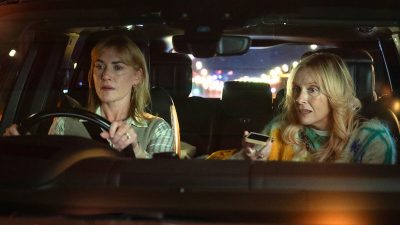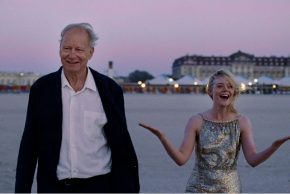Bobby: Come on Phil, what is it? There is something there, right?
Phil Burbank: Not if you can’t see it, there ain’t.
Trailer:
If I see a piano, I think of Jane Campion. If I think of Jane Campion, I think of wind whistling through a wide-open space carrying “tangible” ominosity.
Campion (The Piano, Bright Star, Top of the Lake Series and Sweetie) was 16, travelling much with her family when one day her father got them a 16 mm camera. Jane was instantly fascinated by it, and borrowed the little machine as much as she could.
At art school she was making super 8 mm movies following chapters in a text book and due to having had the “training” with 16 mm she immediately felt she had confidence and an edge to her work. She is a great example why believing in yourself and freeing yourself from creative – or as a matter of fact any – fear are essential.
She is currently raising money for a tuition free, pop-up film school in New Zealand. As she says, she is desperate to give back and make film schools affordable again.
Her most recent work “The Power of the Dog” is a touching, tragic portrayal of a man who is not understood and accepted by himself. Above all, it is a story about the importance of authenticity.
The film is set in 1925 somewhere out in Montana (New Zealand steps in as a double for the location). Phil Burbank (Benedict Cumberbatch) stands like a mirage in the centre of the film. He is one of the last ones from the faded times of pre-Census Bureau when the Frontier was still open, cowboys were breaking horses and running ranches. He has built a classical cowboy image for himself throughout his life, he barely takes baths, castrates bull calves with a blade and his bare hands, bullies every living, breathing creatures, constantly “plays the macho card” or his banjo, drinks anyone under the table and recounts an endless number of fantastic stories about cowboy adventures and old-school Frontier sentiments.
Phil and his brother George (Jesse Plemons) live on the farm their parents gave them. The two of them represent two different worlds, one is a well-educated modest man who drives a car and would help old ladies across the street while the other corrals cattle, makes us squirm with every of his moves and would push old ladies down the stairs in the subway even if he was not in a hurry.
Campion masters at building such a strong atmosphere that we, as viewers, feel the sun beating down on us, the dust and the smell of unbathed bodies swirling up in our noses and hear herds of galloping horses. The plot catapults once George marries Rose (Kirsten Dunst) who owns a small restaurant, struggling to make ends meet with her teenage son, Peter (Kodi Smit-McPhee). Rose moves into the Burbank house where she is soon to be troubled both by the haunting presence and jealousy of Phil and unseen ghosts from the past. Her slow sinking into a world of inner conflicts, isolation, paranoia and fear resemble schemes of classics such as Hitchcock’s Rebecca (1940) or Cukor’s Gaslight (1944).
“The Power of the Dog” is an exciting ride, which is kept on its track by the tension between opposing characters, especially by Peter and Phil. One is deeply vulnerable on the surface covering his many strengths, courage and confidence while the other seems to be the roughest guy around who, in reality, suppresses his authenticity and true emotional self. Phil is a sadist trying to compensate for his own “weakness” by being brutal to others. However, this way of living only works for a certain period of time. All projections come to an end.
The movie is based on the novel by, the uncrowned king of Western literature, Thomas Savage who lived out on a ranch in Montana with his mother, her second husband and the husband’s gruesome brother. Sounds like a familiar setup, right? Savage was a closeted gay man with a poetic soul who in this fictionalized but highly personal story set out to explore machoism, masculinity, femininity and the danger of suppressing any emotion.
Campion made a Western that goes way beyond the “boundaries” of the genre by turning the film into a fascinating study on gender, patriarchy, identity and characters. “The Power of the Dog” is outstanding not only as a movie in its own right but also as a piece that redefines its genre and slams the door on all prejudices that audiences may have against Westerns.
Campion’s 8th feature is exquisitely crafted and framed, executed by a filmmaker at her fiercest, most razor sharp and unforgiving. She takes her viewers’ expectations, wants and needs into zero account. If you have seen the movie, you know this is a great compliment. It is an uncompromising, towering piece.
She creates much melancholy, malevolence and solitude with elegance and poeticism. Her vision is supported by a wonderful cast and crew from Grant Major’s set design to Ari Wegner’s visuals. Through light, texture and elements of nature she invites us into a world where her fantastic actors are all so submerged that they explore the depths of their characters effortlessly.
Where to watch: Netflix
Author: Dora Endre. Here you can find more of her articles.

























Comments